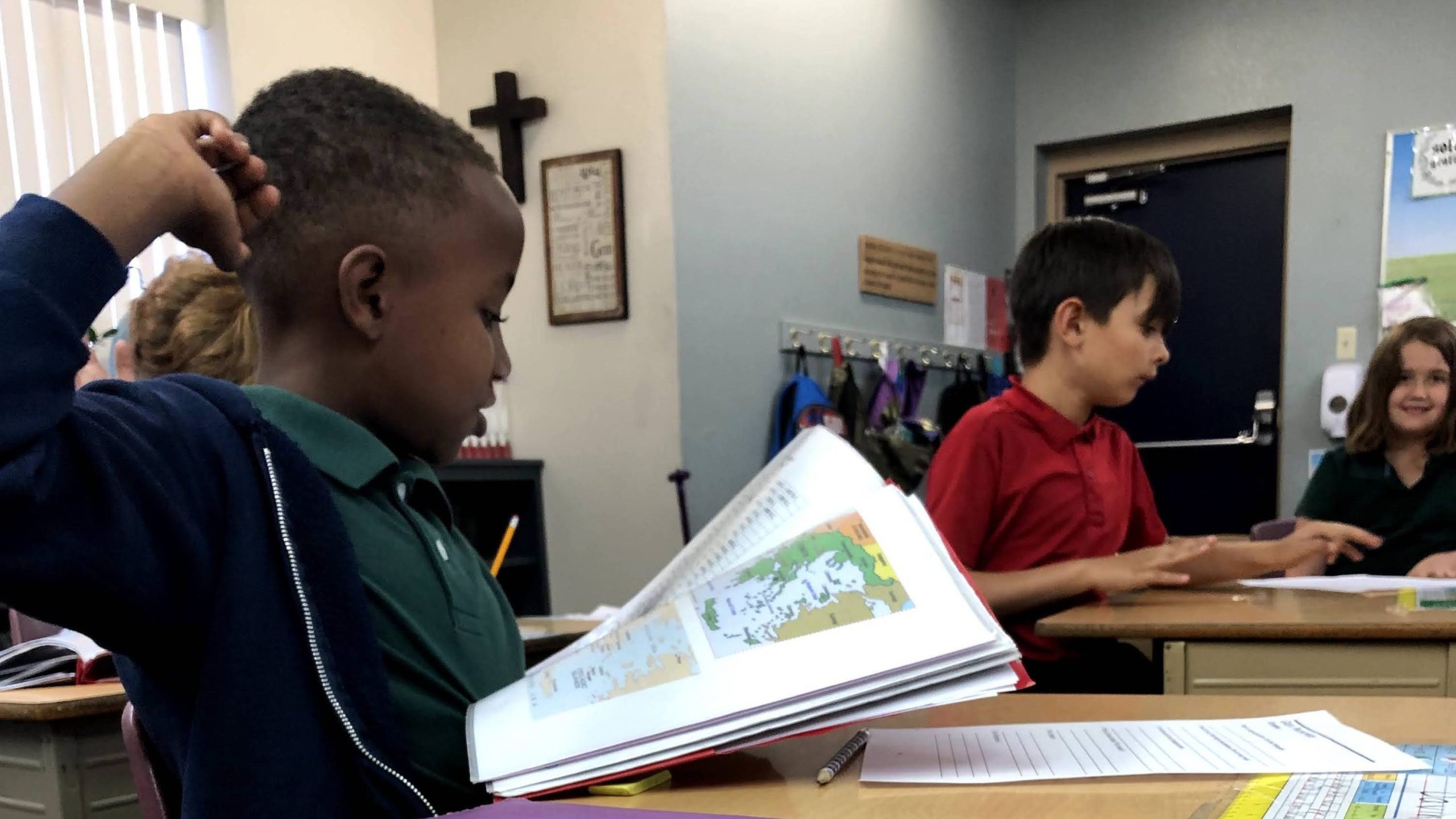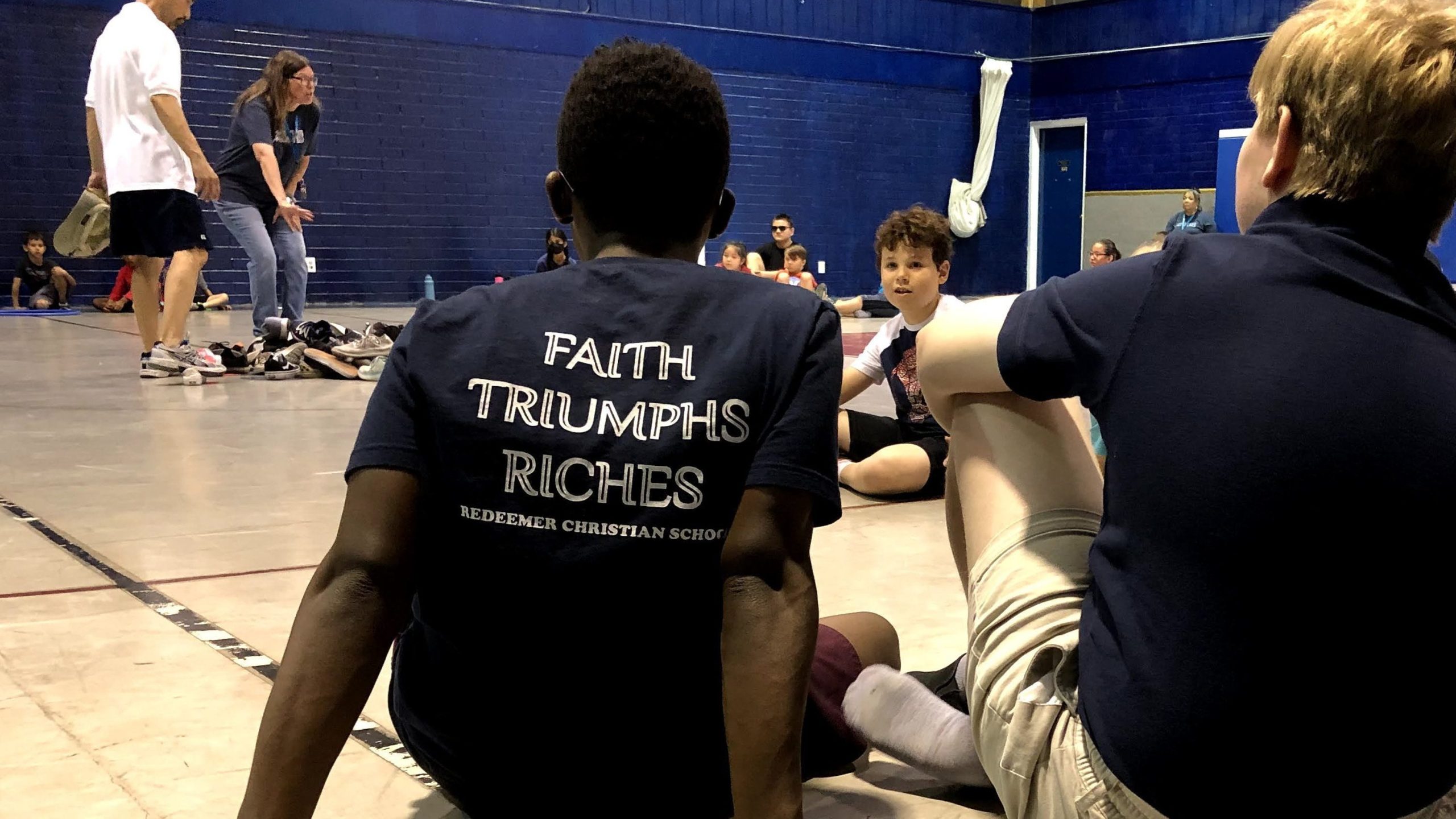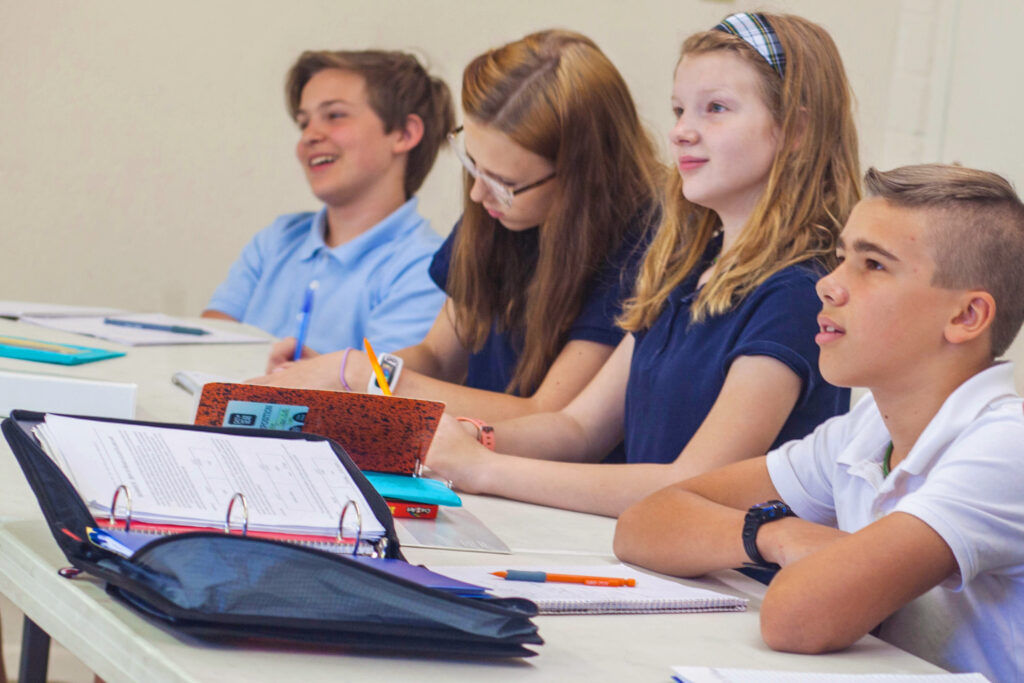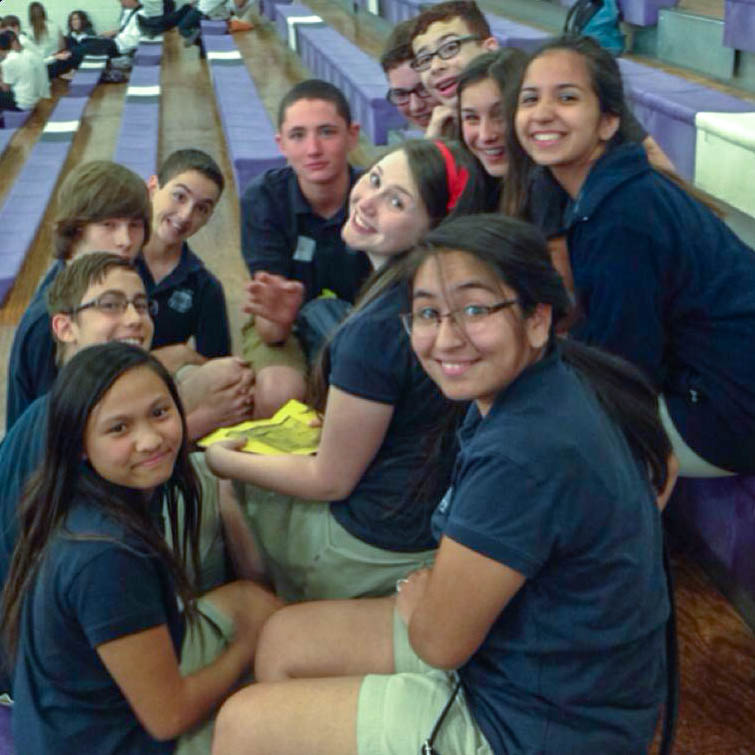The Philosophy of Redeemer Christian School is based upon the Christian worldview that all truth is God’s truth, and that the Bible is the inspired, inerrant, and infallible Word of God and the only rule for faith and practice.

I. Christ-centered Curriculum, Teaching and Environment
God is central in a Christian philosophy of education. God is the Creator, Sustainer, and is sovereign over all things. All truth and knowledge are found in Him. God has revealed Himself through His creation, His Word, providence, and His Son. Apart from these sources, man cannot have true knowledge of the universe, his proper place in the universe, or his relationship to God.
Man is created in the image of God and thus possesses the capacity to learn truth, apply truth in everyday life, and glorify God with his life. However, because of the fall of Adam, man is sinful by nature and by choice. As a result, he is now separated from God and is incapable of knowing or glorifying God apart from a work of reconciliation through the atoning death of Jesus Christ. Man can be reconciled to God by being born again through receiving Jesus Christ as Savior and Lord by faith.
Thus, through repentance and faith in Jesus Christ, man can be restored to a proper relationship with God. Regeneration opens man’s eyes to the truth and he begins to see the universe, his proper place in the universe, and his relationship to God in the light of reality and truth. Christ not only saves us, but He is our Lord and the perfect example of what we are to become. He is the source of all wisdom and truth. Man’s ultimate teacher is God, the Holy Spirit, who guides us through His revealed Word into all truth and enables us to live a holy life.
Education at RCS, therefore, seeks to train students in the knowledge of God, for service to God and their neighbors, unto the glory and praise of God.

II. Classical approach to curriculum and instruction, and culture of the school
RCS is committed to engaging the principles of a Christ-centered classical education. In the classical model, children learn in three phases or stages (grammar, logic or dialectic, and rhetoric), known as the trivium. It is the school’s goal that students know how to think thoroughly, biblically, and maturely, to the end that they may live their lives in service to God and their neighbors, to the glory and praise of God.
RCS is committed to academic excellence, and thus to maximizing each student’s potential (Colossians 3:23-24). Therefore, basic academic skills will be diligently taught and reinforced. The mastery of reading, writing, and arithmetic will be emphasized. The subjects will be taught in a systematic fashion, with the content sequenced throughout grade levels. RCS is committed to consistent evaluation and assessment of our educational process for continuous improvement.

III. In loco parentis
God has given parents the primary responsibility to educate their children (Deuteronomy 6:4-7; Psalm 78:5-8; Proverbs 1:8-9; Ephesians 6:4) rather than the State. Redeemer Christian School is a servant to the home by assisting parents in their covenantal responsibilities to educate their children. We acknowledge that the school does not function above parental authority, but rather with delegated authority (in loco parentis) from the parents. We intend to fulfill these established goals by supporting parents who are already dedicated to such goals in their respective households.

IV. Independence
RCS is an independent, private Christian school, governed by a Board of Directors, relying upon its Mission and Statement of Faith to meet its goals. The school is independent of federal and state governmental control of its curriculum. The school is not subject to undue government influence to affect its Philosophy of Education or its Statement of Faith. RCS is committed to complying with applicable federal and state laws including Arizona’s requirements for graduation.
The Trivium: The Heart of a Classical Education
Redeemer Christian School bases its educational approach upon the time-tested classical model known as the Trivium, which divides the educational life of a student into three stages. Each stage emphasizes the student’s natural capacity for certain types of learning:
The Grammar Stage
- Grades K – 6th
- Builds academic skills of reading, composition, mathematics, and vocabulary of subjects
- Emphasizes the chronological learning and memorization of essential facts, such as:
- Dates, timelines, places, Bible verses in song and chant, hands-on projects, drama, etc.
- Children genuinely find joy in discovering, reciting, and demonstrating what they have learned

The Logic Stage
- Grades 7th – 8th
- Follows a foundation of the grammar stage and includes the study of ordered relationships between subjects, sound reasoning and thinking, mechanics and patterns of language and the framework of subjects
- During the logic stage, students study formal logic, Latin, lab sciences, elements of grammar and composition, research skills, and Bible study methods

The Rhetoric Stage
- Grades 9th – 12th
- Refines the students’ skills of using and articulating knowledge, logically, clearly and persuasively
- Continued chronological studies of literature, Christian apologetics, history, mathematics, and science, and adds to them the study of philosophy, theology, and classical rhetoric
- The capstone of their study is a written and orally defended senior thesis

Education is not a subject, and it does not deal in subjects.
G.K. Chesterton
It is instead the transfer of a way of life.
Give your child the Christian education you wish you had!
Learn how to apply for enrollment and book a campus tour today.